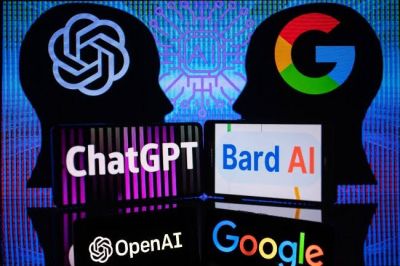While it's fascinating to witness the intensifying arms race between AI-powered language generators like ChatGPT and Google (and make no mistake – that's exactly what's happening), my thoughts keep turning to those of us caught in the middle.
We, the content producers, businesses relying on search engines for web traffic and customers looking for reliable information, we all have questions. And one question in particular: Will this fundamentally change how we work, learn, create and interact on the internet?
ChatGPT (like other natural language generators) poses a significant challenge – a significant threat – even to Google. As ChatGPT's writing capabilities continue to improve, Google will struggle to detect and penalize machine-generated text.
This could lead to an influx of low-quality, machine-generated content, which would undermine the value of human-written web content. Users would find it increasingly difficult to discover high-quality, relevant content in the flood of machine-generated text.
If Google is not able to effectively identify AI-generated text, there is likely to be a corresponding decrease in how much people trust the search engine's ability to provide relevant and valuable results. And that would impact the company's bottom line.
So it's no surprise that Google is up in arms. Like other search engines and platforms, Google is working overtime, quickly figuring out how to meet and manage the challenges posed by AI-powered language generators such as ChatGPT.
What is Google's latest update, E-E-A-T, and how is it helping combat ChatGPT?
One way that Google is combatting AI-generated text is through its own use of AI--developing machine learning algorithms to detect and flag it.
These algorithms analyze text based on patterns and characteristics that are unique to machine-generated text, such as word choice and sentence structure. If the algorithm suspects the text is machine-generated, it will flag it and potentially penalize the website or content creator for publishing it.
To that end, Google has recently released a new version of its Search Quality Rater Guidelines, which significantly changes how it will evaluate web content.
One of the most notable changes is the introduction of a second E to the popular acronym E-A-T, which now stands for Experience, Expertise, Authoritativeness and Trustworthiness.
The inclusion of "experience" in the acronym suggests that content quality will now take the creator's subject matter expertise into account. Google also emphasizes the importance of trust as the most essential aspect of the E-E-A-T concept.
Google's updated guidelines also provide clear examples of important concepts such as (1) the role played by a website's or creator's reputation, (2) the extent to which E-E-A-T matters and (3) what it means for content to be harmful.
This new version of their guidelines is likely to have a significant impact on the SEO community as Google continues to adjust its course to identify and reward content that is both high quality and unique.
Using AI to monitor AI? What about humans?
With the incredible surge of AI natural-language bots and the resulting inundation of words, humans couldn't possibly sort through the results without help. Yet humans do play an absolutely crucial role.
In its continuing effort to guard against AI-generated text, Google is using human evaluators to review content flagged by its algorithms. These evaluators will judge the flagged text to determine whether it is machine-generated.
This is primarily to protect legitimate content that has been mistakenly flagged and interestingly, only humans can reliably make that judgment.
How to use Chat GPT to produce content that won't be penalized by Google
That human layer of AI is really exciting to me. Not only are humans quite literally Google's last line of defense, but at Elite, we've been pairing human nuance with AI-generated work for years. ChatGPT can do some really magical things, but it's only capable of taking the first step toward true communication.
Unaltered, unreviewed AI-generated text is ineffective and even possibly hazardous to a company's authority on Google. It's the human touch that transforms it into high-quality, high-performing content.
That human step is perhaps the most important investment a company can make in content creation right now.
Elite has been leading the way on this front for some time now – as the human layer that makes human-led AI content not just palatable to Google, but equally useful to a human audience.
Inc
